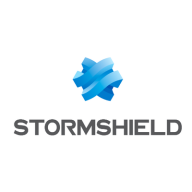


Stormshield Network Security and Huawei NGFW are competitors in the network security field. Huawei NGFW tends to have the upper hand due to its advanced threat detection and integration capabilities.
Features: Stormshield Network Security offers advanced firewalling capabilities with customizable object groups and rules, a valuable Stormshield Analyzer for data collection and reporting, and robust antivirus controls at both the parameter and endpoint levels. Huawei NGFW provides a scalable interface, effective URL filtering, and comprehensive intrusion detection and prevention with IPS and cloud sandboxing.
Room for Improvement: Stormshield could enhance its user interface and scalability to handle larger environments more seamlessly and improve compatibility with third-party applications. Huawei NGFW might benefit from simplifying its complex features, enhancing support across more geographic regions, and ensuring faster response times from its customer support.
Ease of Deployment and Customer Service: Stormshield Network Security is known for its straightforward configuration and responsive customer support, making it accessible for different infrastructures. Huawei NGFW, while offering an extensive library of support resources and documentation, can have a more complex deployment process. Nevertheless, its technical support is excellent and offers in-depth assistance.
Pricing and ROI: Stormshield is considered cost-effective with transparent pricing, offering a solid return on investment through its reliable features. Huawei NGFW might require a higher initial investment but provides advanced functionalities that justify its cost for organizations looking for extensive integration and innovation, potentially yielding better ROI for those valuing cutting-edge technology.



Fortinet FortiGate offers comprehensive network security and firewall protection across multiple locations. It effectively manages data traffic and secures environments with features like VPN, intrusion prevention, and UTM controls.
Organizations rely on Fortinet FortiGate for its robust integration with advanced security policies, ensuring significant protection for enterprises, cloud environments, and educational sectors. It facilitates network segmentation, application-level security, and authentication management, securing communication within and between locations such as branches and data centers. Its efficient SD-WAN and UTM features enable streamlined data management and enhanced threat protection capabilities. Users appreciate its centralized management, facilitating seamless operations across diverse environments.
What are the key features of Fortinet FortiGate?
What benefits should users expect from Fortinet FortiGate?
Fortinet FortiGate is crucial in sectors like education, offering robust networks for secure data flow between campuses and facilitating remote learning. In enterprise environments, it allows efficient management of application traffic and security across multiple branches, while in the cloud, it seamlessly integrates with diverse platforms to enhance security infrastructure.
Huawei's Next-Generation Firewall (NGFW) is a cutting-edge security solution designed to protect networks from advanced threats. With its advanced threat detection and prevention capabilities, the Huawei NGFW ensures the highest level of network security.
The product offers comprehensive security features, including intrusion prevention, application control, and URL filtering, to safeguard against a wide range of cyber threats. The NGFW also provides deep packet inspection and advanced threat intelligence, enabling real-time threat detection and response.
With its high-performance architecture, the Huawei NGFW delivers fast and efficient security without compromising network performance. It is easy to deploy and manage, thanks to its intuitive user interface and centralized management platform.
The NGFW also supports flexible deployment options, including virtualization and cloud integration, making it suitable for various network environments.
We monitor all Unified Threat Management (UTM) reviews to prevent fraudulent reviews and keep review quality high. We do not post reviews by company employees or direct competitors. We validate each review for authenticity via cross-reference with LinkedIn, and personal follow-up with the reviewer when necessary.